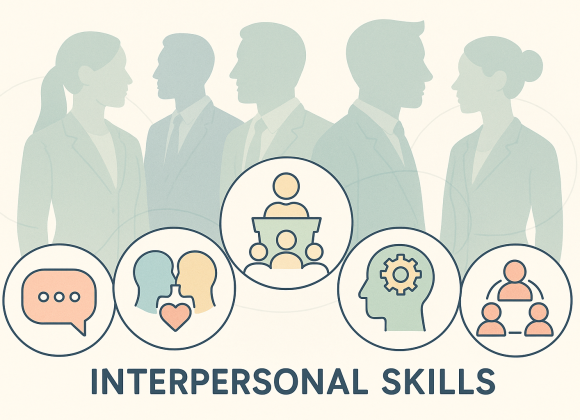Introduction
In a sea of job applications, what makes a resume stand out? Is it years of experience, academic credentials, or flashy design? While those factors matter, the real differentiator lies in the skills section. Hiring managers are not just looking for candidates who meet the qualifications — they’re looking for people who bring value, versatility, and impact.
According to a 2024 LinkedIn Global Talent Trends report, 89% of hiring managers prioritize skills over job titles, and 75% say they’ve hired candidates who didn’t meet all traditional requirements but had the right skills mix.
In this blog, we break down the top hard and soft skills hiring managers seek in 2025 and how to effectively highlight them on your resume.
Why Skills Matter More Than Ever
Today’s workplaces are dynamic, tech-driven, and team-oriented. Employers want candidates who can:
- Solve problems independently
- Work well in diverse teams
- Learn new tools quickly
- Adapt to change
- Bring innovation and empathy to the table
Your skills reflect how you’ll behave in the job — more than degrees or previous titles ever could.
Top 10 In-Demand Skills Hiring Managers Are Actively Seeking
1. Communication Skills

- Why it matters: Clear communication ensures better teamwork, client relationships, and fewer misunderstandings.
- How to highlight: Use phrases like “Presented quarterly reports to senior leadership” or “Wrote technical documentation for internal training.”
Tip: Don’t just write “Excellent communication skills.” Prove it with achievements or results from presentations, negotiations, or written communication.
2. Critical Thinking & Problem Solving

- Why it matters: Employers want professionals who can assess situations, weigh options, and make informed decisions without constant supervision.
- How to highlight: Describe a scenario where you found an efficient workaround or resolved a bottleneck.
“Redesigned our order process to reduce shipment delays by 30% over 2 months.”
3. Adaptability and Agility
- Why it matters: With AI, remote work, and shifting markets, companies value employees who can pivot quickly.
- How to highlight: Mention times you learned new tools, handled sudden changes, or transitioned roles smoothly.
“Adapted to hybrid work model and led remote teams using Slack and Trello, maintaining 95% project delivery rate.”
4. Teamwork and Collaboration

- Why it matters: Cross-functional teamwork is the backbone of modern businesses.
- How to highlight: Mention collaborative projects, team leadership, or contributions to group success.
“Collaborated with UX designers and developers to launch a customer support chatbot, reducing ticket volume by 40%.”
5. Digital Literacy & Tech Skills

- Why it matters: Regardless of your role, tech fluency is essential.
- Examples:
- MS Office & Google Workspace
- Data analysis tools (Excel, Tableau, Power BI)
- CRM platforms (Salesforce, HubSpot)
- Collaboration tools (Asana, Notion)
“Used Google Data Studio to visualize KPIs, improving data visibility for marketing campaigns.”
6. Leadership Skills (Even Without a Title)

- Why it matters: Initiative, mentorship, and influencing others count more than just the title “Manager.”
- How to highlight: Showcase mentoring juniors, leading meetings, or initiating change.
“Mentored 3 new hires and initiated a new onboarding checklist that cut training time by 25%.”
7. Time Management
- Why it matters: Productivity and punctuality are core to professional success.
- How to highlight: Give metrics or outcomes that show your efficiency.
“Managed 10+ client accounts simultaneously, meeting all deadlines with 98% satisfaction score.”
8. Emotional Intelligence (EQ)
- Why it matters: EQ supports better teamwork, leadership, and client relations.
- How to highlight: Mention conflict resolution, empathy, or high-stress situations handled calmly.
“Handled customer complaints empathetically, converting 85% of negative feedback into repeat sales.”
9. Creativity and Innovation
- Why it matters: New ideas lead to better products and processes.
- How to highlight: Mention new methods, brainstorming sessions, or initiatives you started.
“Introduced an internal newsletter to streamline team updates, improving information flow by 60%.”
10. Technical Proficiency (Role-Specific Skills)

- Why it matters: Every role has its technical must-haves — from coding in Python to managing inventory systems.
- How to highlight: Include tools, software, or certifications that align with your target role.
Examples by field:
- Marketing: SEO tools, Google Analytics, Canva, Meta Ads
- Engineering: AutoCAD, MATLAB, SolidWorks
- Finance: QuickBooks, SAP, Excel modeling
- IT: Python, SQL, AWS, DevOps tools
How to Effectively Showcase Skills on Your Resume
- Tailor Each Resume to the Job Posting
Use keywords from the job description. Hiring software (ATS) will look for exact matches. - Use Action-Oriented Bullet Points
Describe what you did and how it added value: “Optimized social media strategy, increasing engagement by 45%.” - Combine Skills With Results
Instead of “Team player,” say: “Collaborated with sales and design to launch a new product line that added ₹1.5 crore in revenue.” - List Tools and Certifications Separately
Create a dedicated “Technical Skills” or “Certifications” section.
Soft Skills vs. Hard Skills
| Soft Skills | Hard Skills |
|---|---|
| Communication | Data Analysis, Excel, SQL |
| Problem-Solving | Python, Java, Google Analytics |
| Adaptability | Financial Modeling, SEM, CRM Platforms |
| Emotional Intelligence | CAD Software, Project Management Tools |
| Leadership | Coding, UX Design, Social Media Strategy |
Pro Tip: A mix of both types is ideal. 2025 hiring trends show employers lean toward balanced profiles.
Final Thoughts
Your resume is not just a record — it’s your personal brand on paper. By aligning your skills with what hiring managers actually care about, you dramatically increase your chances of landing that interview.
The goal is not just to tell recruiters you can do the job — it’s to prove you’re the best person for it.





